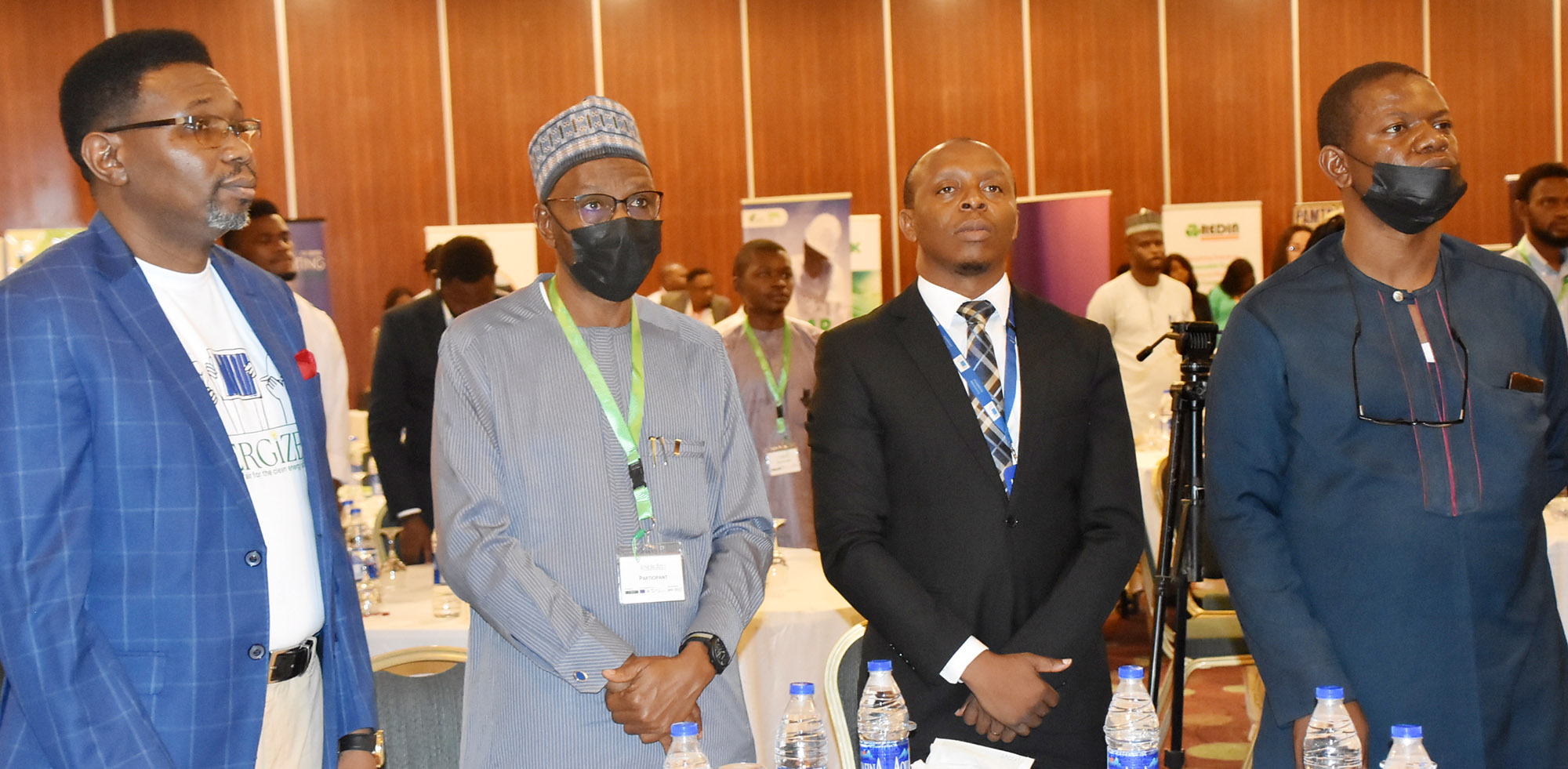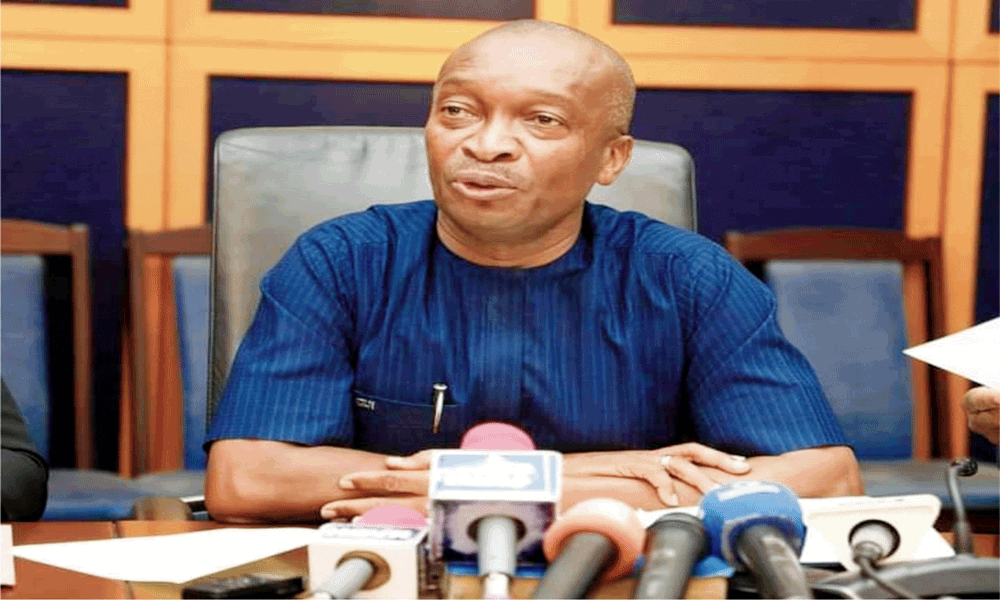Politics
Constituency Projects: Federal Lawmakers Rob Their Constituents – Report

The Independent Corrupt Practices and other related offences Commission (ICPC) has given an insight into why there are persistent infractions by lawmakers and other government officials in the execution of constituency projects.
The anti-graft agency revealed this in a series of reports on its Constituency and Executive Projects Tracking Initiative (CEPTi) conducted.
The Tide source had earlier reported how the agency, in its report on the second phase of the project tracking exercise, revealed cases of alleged abuse of office and conversion of public property to personal use by three senators from Kebbi, Taraba, and Jigawa States.
The senators identified through additional checks are Adamu Aliero (Kebbi Central); Sabo Nakudu Mohammed (Jigawa South-West), and Emmanuel Bwacha (Taraba South)
About 490 Zonal Intervention Projects (ZIP), also known as constituency projects, with each costing at least N100 million, were tracked in the second phase of CEPTi in 2020.
The report on the tracking exercises obtained by our source revealed a series of violations allegedly committed by federal lawmakers with the complicity of some officials of the executing ministries, departments, and agencies of the federal government.
ICPC Chairman, Bolaji Owasanoye, said in one of the CEPTi reports that as of 2019, an estimated N2trillion had been budgeted for ZIPs since 2000. He adds that despite the huge releases citizens continue to make agitations about “shoddy completion, non-completion or outright non-existence of these projects in their locale”.
The commission also revealed how some lawmakers’ conduct in handling some of the projects denied “the public due and legitimate service of the projects.”
Under the ZIP scheme, which started in 2000, senators and members of the House of Representatives are allowed to nominate or sponsor projects for the benefit of their constituents.
But, from the ICPC’s report of the first phase of the CEPTi exercise earlier conducted in 2019, lack of adherence to the provisions of the public procurement law and regulations is a major reason for the persistent infractions in the execution of constituency projects.
The commission stated that the role of legislators in the constituency project matters, according to the procurement law, “is restricted to identification of projects while the relevant MDA (ministries, departments, and agencies) would perform the contract without let or hindrance”.
It, however, added that “in practice, MDAs are not involved in the conception of ZIPs” and that “sponsors nominate contractors and take physical custody of items procured by MDAs under the pretext that they would distribute to beneficiaries”.
ICPC’s allegations, such as abuse of office, conflict of interest, misappropriation, and conversion of public property to personal use raised against the Jigawa, Taraba, and Kebbi senators are criminalised and punishable with jail terms under the Public Procurement Act, 2007, the Corrupt Practices and Other Related Offence Act, 2000, and other laws.
A lawyer and fiscal accountability expert, Eze Onyekpere, said MDAs who constitute part of the executive branch of government must be held to account for the violations of the Public Procurement laws.
Mr Onyekpere, who leads the Centre for Social Justice (CSJ), a non-governmental organisation, noted that it is the sole responsibility of the MDAs to award and supervise contracts.
“Legislators nominate projects into the budget, money is never released to the lawmaker. Money is released to the MDAs.
“The public Procurement Act says the permanent secretary is the accounting officer and there is a renders board; they award and supervise contracts. They pay money. Where is the legislator in all these?” the lawyer queried.
He said the defence by contract-awarding agencies that they were coerced by lawmakers to award contracts to their cronies as indicated in ICPC’s constituency projects tracking exercise, was not tenable.
“The primary offender must be punished. Whoever awarded a contract and did not implement it, he should be held accountable,” Mr Onyekpere added, urging MDAs to resist the “subtle force” from lawmakers that breach the law.
Politics
Call For Rivers CTC Chairmen’s Arrest Illegal -Commissioner, Others

Rivers State Commissioner for Information and Communications, Mr Joe Johnson, and other stakeholders have condemned the call by the embattled Martin Amaewhule-led members of the Rivers State House of Assembly for the arrest of Local Government Caretaker Chairmen in the state.
The Commissioner, who made his position known in a voice note he sent a live radio discussion programme in Port Harcourt, described the call as illegal.
He explained that the Local Government Caretaker Committees were empowered by the State Local Government law of 2018, stressing that since the amendment made to the law by former lawmakers in their tenure elongation bid was dismissed by the court, the 2018 law is still subsisting.
According to the Commissioner, the 2018 law provides a window of 90 days for caretaker committees in the event that election could not be held and urged the public to discountenance the call.
Meanwhile, the Coalition of Rivers State Leaders of Johnson Thoughts (CORSLOT), a socio- political organisation, has joined in condemning the call.
Convener of the Coalition, High Chief Sunnie Chukumele, described the call as an act of brigandage.
He said the call is not only unconstitutional but also capable of causing disaffection in the state.
Chief Chukumele argued that Martin Amaewhule lacked the locus standi to make the call since he was no longer a member of the Rivers State House of Assembly.
“CORSLOT condemned the call, and we want to warn Martin Amaewhule against causing crisis in the state”, he said.
He said as elders of the state, the Coalition will continue to speak out against evil.
Also reacting, a former Organizsing Secretary of the Peoples Democratic Party (PDP) in Andoni Local Government Area, Elder Blessing Tiko, said the call was coming from someone that is seeking for relevance.
He also said Martin Amaewhule and the 25 former law makers had no locus standi to make such call as their positions were being contested in court, urging the police to ignore the call.
John Bibor
Politics
Speak Directly To Electorate, Edo Govt Challenges APC’s Okpebholo
As the campaign for the September 21, 2024, governorship election in Edo State heats up, the Edo State Government has challenged the candidate of the opposition All Progressives Congress (APC), Senator Monday Okpebholo, to address the electorate directly and not through the over 150 spokesmen who speak on his behalf.
Addressing a press conference, Wednesday, the duo of Commissioner for Communication and Orientation, Chris Nehikhare, and Special Adviser to Governor Godwin Obaseki on Media Projects, Crusoe Osagie, said that it was embarrassing that in the last three months, Senator Okpebholo had not addressed the people directly.
They therefore challenged the APC candidate to address the people of the state in any language of his choice, for, at least, five minutes.
Speaking, Mr Nehikhare noted that the APC had in the last three months issued over 150 press statements without one of the statements mentioning what the party intended to do for the people of Edo State, if elected.
Mr Nehikhare, who said that Governor Obaseki should be commended for the maturity he displayed in handling the violence that broke out in the state penultimate Thursday, bemoaned a situation where the APC had not deemed it necessary to mention one line item it planned to execute should it be elected in the forthcoming election.
“We led the charge for the N70,000 minimum wage, which the APC Federal Government has copied. Our candidate, Asue Ighodalo, has said that he would review it upward if elected. The APC has not said what it intends to do. The APC has not shown any innovative way to involve itself in the minimum wage.
“Since September last year, we introduced the free bus ride scheme, and we have extended it to November. Nowhere from the APC have we heard what it wants to do. We have employed over 5,000 people into the civil service, apart from the teaching service; there has been nothing from the APC,” the commissioner stated.
According to Mr Nehikhare, “The APC candidate is the only one with over 150 people speaking for him and none has said anything about what the APC candidate will do for the people. Is that how to do it? Won’t the candidate speak for himself?”
Politics
PDP Chieftain Drums Support For Rivers LG Polls
A chieftain of the Peoples Democratic Party ( PDP) in Etche Local Government Area of Rivers State, Dr.John Okoroafor, has called on Rivers people, especially supporters of the PDP, to commit to the success of the forthcoming local government elections in the state.
Addressing newsmen recently in Okehi, headquarters of the LGA, on his readiness to contest the chairmanship seat of the council in the scheduled October 5, 2024 Local Government polls, Dr Okoroafor urged supporters of the party to remain calm, steadfast and supportive to Governor Siminalayi Fubara’s administration.
On political crisis in the state, he enjoined the people not to yield to threats of those he described as “enemies of Rivers development and progress,” but rather stay committed and proactive in their support to both the Governor and the PDP as it affects the coming elections.
Dr Okoroafor, a lawyer and Deputy State Coordinator of a political pressure group in the state, the PDP-Grassroots Support Base of Nigeria (PDP-GSBN), stressed that, “We should not allow ourselves to be intimidated or terrorised to fail in this civic responsibility.”
He said this is necessary so that leaders and loyalists of the party in the state would not be harassed, intimidated and arrested by security agents even on the day of election.
The PDP Chairmanship hopeful in the area also hinted that the opposition plans to engage in electoral violence and all manner of distractions.
“In all of these, be civil, calm, tolerant and focused, as the best is around the corner for us all”, he admonished.
The PDP chieftain appealed to Etche electorate in particular and Rivers voters in general to rise up to vote massively for all the PDP candidates in the polls.
Dr Okoroafor enjoined them not to vote in anyone that is opposed to the Governor Fubara -led government, arguing that the opposition lacked credibility and does not mean well for them.
He assumed Etche people that if voted in to power as Chairman, he will facilitate more development projects to the LGA, including jobs and other dividends of democracy.
Meanwhile, Dr Okoroafor said it had become necessary to encourage unemployed graduates to engage in skills acquisition rather than roaming the streets for employment opportunities, that do not exist.
Bethel Toby
-
News3 days ago
We Won’t Politicise Education In Rivers, Says Fubara …Inaugurates Senior Secondary Schools, UBE Boards
-
Sports3 days ago
D’Tigress’ Onyemere Celebrates X Billboard Appearance
-
Entertainment1 day ago
BBNaija Season Nine Begins, Sunday
-
Politics1 day ago
Court Restrains Abia PDP From Holding Party Congresses
-
Nation3 days ago
CBN Interest Rate Rises To 26.75%
-
Rivers3 days ago
Reactions Trail RSHA Ban On Open Defecation
-

 News1 day ago
News1 day agoMisuse LG Funds, Face Jail ? Term, FG Warns Chairmen
-
Entertainment1 day ago
Ayra Starr Performs ‘Last Heartbreak Song’On The Tonight Show

